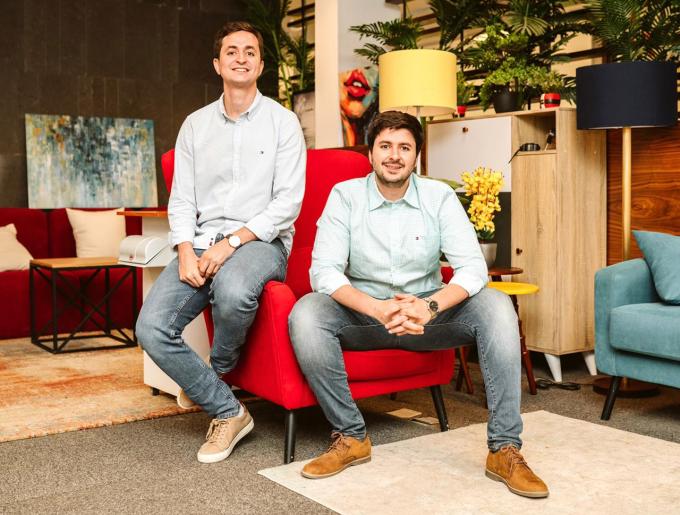- May 18, 2021
- by:
- in: Blog
While Madrid and Barcelona tend to attract the buzz when it comes to tech startups in Spain, Valencia is slowly and surely making a name for itself as a growing tech ecosystem.
While Madrid and Barcelona tend to attract the buzz when it comes to tech startups in Spain, Valencia is slowly and surely making a name for itself as a growing tech ecosystem.
The country’s third-largest city, Valencia features great beaches, sunny weather all year, and affordable housing and healthcare. And with a population of only around a million people, it’s a little more manageable compared to its bigger cousins.
The city also topped the InterNations Expat City Ranking 2020 as one of the best cities for expats to settle in. What’s more, it produces plenty of talent — about 25,000 bachelor’s and masters degrees are issued in the city every year.
So to find out what the startup scene in Valencia looks like, we spoke with eight local investors, executives and founders. The city appears to be strong in areas such as travel, AI, cybersecurity, fintech, agritech, travel tech, biotech, sports tech, and VR. The blockchain/crytpo scene could do with some improvement, according to a few respondents.
The city’s investment scene is not particularly large and most investors focus on seed funding, but it’s growing as family-owned companies, and individual and institutional investors turn to tech. BIGBAN is a private nonprofit angel investor network based in Valencia, and incubators and accelerator programs continue to proliferate, supported by corporates and local government initiatives such as Startup Valencia.
Notable startups in the city include Streamloots, Voicemod, Jeff, Beroomers, Flywire and Blinkfire Analytics.
We surveyed:
- Luz Adell, CFO/partner, Draper B1
- Jordi Díaz Maiquez, CEO, Play&go experience
- Helena Ortiz Gil, CMO, Techer Team
- Patricia Pastor, director, GoHub
- Fernando Marzal, VP of New Business, Jeff
- Enrique Penichet, founding partner, Draper B1
- Javier Moliner Urdiales, CEO, Howlanders
- Jorge Soriano Lázaro, CEO, Criptan
Luz Adell, CFO/partner, Draper B1
Which sectors is your tech ecosystem strong in? What are you most excited by? What does it lack?
Key sectors include fintech, agritech and travel tech.
Which are the most interesting startups in your city?
Streamloots, Criptan, Voicemod, Boatjump, Zeleros, WiTraC and Sales Layer.
What are the tech investors like in Valencia? What’s their focus?
The Valencia investor scene is growing. There are more family-owned companies, and individual and institutional investors, and they have also invested capital. We have some of the top incubators and accelerator programs in Spain. BIGBAN, a private nonprofit angel investor network based in Valencia, is building and developing one of the most dynamic and active investor communities in Spain.
With the shift to remote working, do you think people will stay in Valencia, or will they move out? Will others move in?
People will stay or move in to the city. Expats and digital nomads prefer moving to Valencia.
Who are the key startup people in the city (e.g., investors, founders, lawyers, designers)?
Startup Valencia, BIGBAN, Lanzadera, Plug and Play, GoHub, Angels Capital, Demium, Tbig Advisory, KM Zero, BioHub and Draper B1.
Where do you think the city’s tech scene will be in five years?
Valencia is becoming a pole of attraction for companies and talent thanks to an ecosystem in continuous evolution, with a clear entrepreneurial mindset.
Jordi Díaz Maiquez, CEO, Play&go experience
Which sectors is your tech ecosystem strong in? What are you most excited by? What does it lack?
Tourism.
Which are the most interesting startups in your city?
Zeleros.
What are the tech investors like in Valencia? What’s their focus?
Demium, and GoHub for deep tech.
With the shift to remote working, do you think people will stay in Valencia, or will they move out? Will others move in?
People will stay or move in.
Where do you think the city’s tech scene will be in five years?
Much better than now.
Helena Ortiz Gil, CMO, Techer Team
Which sectors is your tech ecosystem strong in? What are you most excited by? What does it lack?
Virtual reality is strong and exciting. Blockchain could be improved.
Which are the most interesting startups in your city?
Techer Team and some Lanzadera projects.
What is the investing scene like in Valencia? What’s the investors’ focus?
It could improve.
With the shift to remote working, do you think people will stay in Valencia, or will they move out? Will others move in?
Most people stayed back.
Who are the key startup people in the city (e.g., investors, founders, lawyers, designers)?
Lanzadera, Valencia Activa, Demium and GoHub.
Where do you think the city’s tech scene will be in five years?
I hope it improves.
Patricia Pastor, director, GoHub
Which sectors is your tech ecosystem strong in? What are you most excited by? What does it lack?
Water, industry, smart city tech.
Which are the most interesting startups in your city?
Fivecomm, Sales Layer, Quibim, Jeff and Voicemod.
What are the tech investors like in Valencia? What’s their focus?
GoHub for B2B in AI, 5G, cybersecurity and sustainability.
With the shift to remote working, do you think people will stay in Valencia, or will they move out? Will others move in?
We’ll see hundreds of remote workers.
Where do you think the city’s tech scene will be in five years?
In the top 15.
Fernando Marzal, VP of New Business, Jeff
Which sectors is your tech ecosystem strong in? What are you most excited by? What does it lack?
Day-to-day services.
Which are the most interesting startups in your city?
Flywire, Streamloots, Voicemod, Blinkfire and Demium.
What is the tech investment scene like in Valencia? What’s investors’ focus?
Seed investors.
With the shift to remote working, do you think people will stay in Valencia, or will they move out? Will others move in?
Stay. Valencia is one the better places to work thanks to weather, city size, beach, etc.
Who are the key startup people in the city (e.g., investors, founders, lawyers, designers)?
Startup Valencia Association.
Where do you think the city’s tech scene will be in five years?
One of the main startup cities in Europe.
Enrique Penichet, founding partner, Draper B1
Which sectors is your tech ecosystem strong in? What are you most excited by? What does it lack?
Valencia’s tech ecosystem is strong on providing tech talent. There are a lot of people with capabilities in AI and cybersecurity. Because of this some corporate accelerators are growing strong here, mainly in fintech, such as Bankia Fintech.
We have a unicorn in fintech Flywire, and a foreign fintech scaleup, Creditas (from Brazil), has established their HQ here. We also have some good startups in fintech growing here such as Criptan, Colectual or The Logic Value.
Valencia has also been traditionally strong in video gaming. ESAT, a globally recognized academy located here, provides great talent, and mainly due to this, we have some successful startups such as Voicemod or Streamloots in the gaming industry. In fact, one of the major gaming events in Spain and Europe, Dreamhack, is held in Valencia.
Due to Lanzadera, together with Station F, one of the biggest accelerators in Europe is located in Valencia, and there are now startups growing in all verticals.
Which are the most interesting startups in your city?
Flywire, Jeff, Streamloots, Voicemod, Criptan, Cronoshare, Quibim, Cuidum and Gokoan.
What are the tech investors like in Valencia? What’s their focus?
Most investors are business angels and early-stage investors. Draper B1, Angels Capital, Zriser, and Keith VC.
With the shift to remote working, do you think people will stay in Valencia, or will they move out? Will others move in?
Both things are happening, Valencia is a nice place to work, near the Mediterranean Sea. It was recognized by Bloomberg as the No. 1 city in the world to work. So, many people are coming here to work remotely. At the same time, some people are leaving to work from the countryside.
Who are the key startup people in the city (e.g., investors, founders, lawyers, designers)?
Accelerators and founders.
Where do you think the city’s tech scene will be in five years?
A bunch of companies from Valencia have closed Series A rounds. Hopefully, in five years it will be commonplace to see some Series B or C or D happening. Right now, probably only Flywire has accomplished that.
Javier Moliner Urdiales, CEO, Howlanders
Which sectors is your tech ecosystem strong in? What are you most excited by? What does it lack?
E-commerce, travel and Industry 4.0.
Which are the most interesting startups in your city?
Howlanders, Jeff, Airhopping, Landbot and WiTraC.
What are the tech investors like in Valencia? What’s their focus?
Focus on seed. Already some years of experience, mainly BA, small VC or crowd.
With the shift to remote working, do you think people will stay in Valencia, or will they move out? Will others move in?
People will move in due to quality of life, low costs, the location and local government support.
Who are the key startup people in the city (e.g., investors, founders, lawyers, designers)?
Javier Megias and Juan Roig.
Where do you think the city’s tech scene will be in five years?
Bigger, stronger, totally international community thanks to new arrivals (startups and remote workers), more national or international VCs managed locally from Valencia.
Jorge Soriano Lázaro, CEO, Criptan
Which sectors is your tech ecosystem strong in? What are you most excited by? What does it lack?
Cryptocurrencies, or using crypto.
Which are the most interesting startups in your city?
Balio.
What are the tech investors like in Valencia? What’s their focus?
Draper B1.
With the shift to remote working, do you think people will stay in Valencia, or will they move out? Will others move in?
Yes, people are staying here. We were working remotely since the beginning.
Who are the key startup people in the city (e.g., investors, founders, lawyers, designers)?
Draper B1, Enrique Penichet and Signne.
Where do you think the city’s tech scene will be in five years?
One of the most innovative in Europe.











